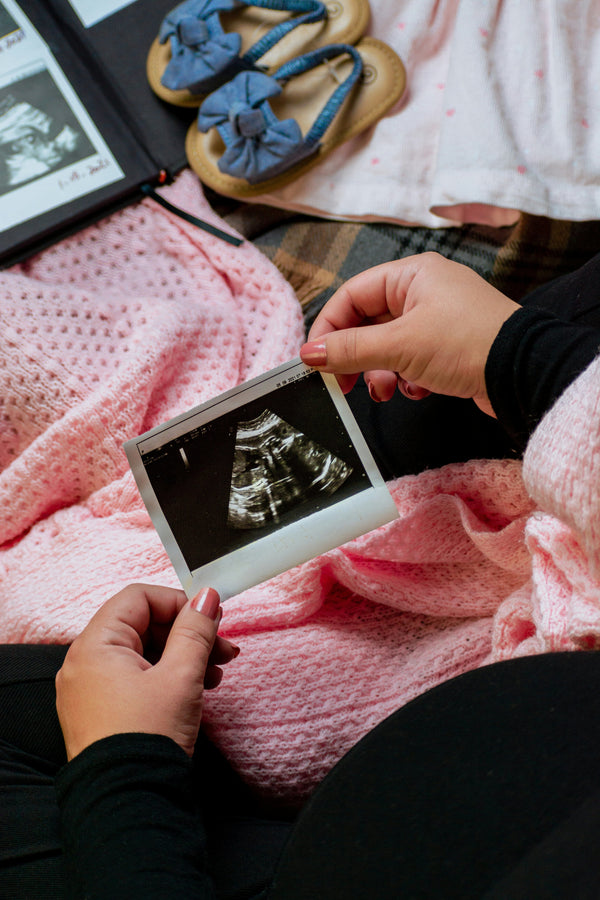Article
Antidepressants During Pregnancy: What You Need to Know
Posted on
If you're pregnant or planning to be and you're taking antidepressants or thinking about starting them, you're not alone. Many people wonder: Is it safe? Will my baby be okay? What are the risks of stopping or continuing medication?
Your mental health matters during pregnancy, and there are safe, well-supported ways to care for both yourself and your baby.
Why Mental Health in Pregnancy Matters
Pregnancy brings many emotional and physical changes. For some, it’s a joyful time; for others, it can increase stress, anxiety, or depression, especially if mental health challenges existed before pregnancy. This is nothing to be ashamed of, and support is available.
According to the NHS and NICE guidelines, antidepressants are sometimes needed during pregnancy, particularly if symptoms are moderate to severe. Selective serotonin reuptake inhibitors (SSRIs), like sertraline, are often recommended due to their relatively low risk profile during pregnancy (NHS.uk, 2024; NICE CG192).
Understanding Risks and Benefits
Stopping antidepressants suddenly can cause a return of symptoms and withdrawal effects. Therefore, it’s essential to work closely with your GP, midwife, or mental health professional when making changes. For many, continuing medication may be safest for both parent and baby.
Research shows that babies exposed to SSRIs may have a slightly increased chance of early birth, lower birth weight, or mild temporary symptoms at birth such as breathing changes. However, these effects are usually mild and short-lived, and serious long-term risks appear very low (Royal College of Psychiatrists, 2023).
Untreated depression or anxiety can impact sleep, nutrition, bonding after birth, and increase rates of postnatal depression. It may also influence the baby's early behavioural and emotional development. That’s why supporting your mental health during pregnancy is vital for you and your child (Tommy’s, 2023).
Making the Right Choice
Every pregnancy and person is different. Your GP or midwife will consider your history, symptom severity, and preferences to help make the best plan. For some, therapy and lifestyle support suffice; for others, medication is essential.
Steps You Can Take Now
Talk openly with your GP, midwife, or mental health team
Ask questions until you feel confident in your choices
Lean on trusted support - partners, friends, or therapists
Take simple daily steps: fresh air, rest, regular meals, and connection
You Are Not Alone
Mental health challenges in pregnancy are common and manageable with the right support. Choosing to seek help is a strong and positive step for you and your baby.
Your mental health matters. During pregnancy, after birth, and always.
References
-
NHS.uk. (2024). Mental health during pregnancy. https://www.nhs.uk/pregnancy/keeping-well/mental-health/
-
NICE. (2014). Antenatal and postnatal mental health: clinical management and service guidance (CG192). https://www.nice.org.uk/guidance/cg192
-
Royal College of Psychiatrists. (2023). Mental health and pregnancy. https://www.rcpsych.ac.uk/mental-health/treatments-and-wellbeing/mental-health-and-pregnancy
-
Tommy’s. (2023). Mental health problems during pregnancy. https://www.tommys.org/pregnancy-information/im-pregnant/mental-wellbeing/mental-health-problems-during-pregnancy
-
Medicines in Pregnancy (BUMPS). (2024). https://www.medicinesinpregnancy.org/
Further reading
-

Is this normal in trimester 2?
Pregnancy can feel like a constant swirl of questions and new experiences. The second trimester is often called the “honeymoon... -

Myths About Early Pregnancy Safety
Trigger Warning: This post discusses early pregnancy, including topics such as miscarriage and common symptoms. The first twelve weeks of...


